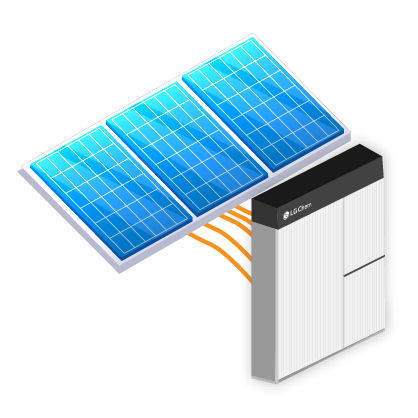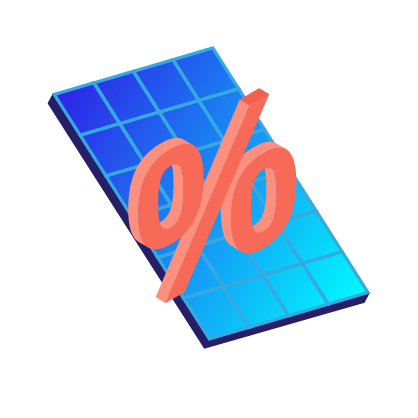Do Solar Panels Work Less Efficiently at Certain Temperatures?
It’s easy to confuse heat energy and light energy since we often experience them in tandem. But when it comes to solar panels, there is a big difference between the two.
This is because of the unique characteristics of a solar panel. This difference plays a major role in answering the question of whether or not solar panels work less at certain temperatures.
The Science of Solar Energy Conversion
The number one (often forgotten) rule of solar electricity is that solar panels generate electricity with light from the sun, not heat.
While temperature won’t change how much energy a solar panel absorbs from the sun, it actually can change how much of that energy is converted into electricity. If a solar panel is extremely hot or extremely cold, its efficiency does drop. This is typical of most devices and electronic equipment, so it shouldn’t come as too big a surprise.
What might be somewhat surprising though, is that solar panels actually seem to be able to handle a bit more cold than a bit too much heat. Here’s why.
A Hot Solar Panel vs. A Cold Solar Panel
Inside a hot solar cell, atoms vibrate at a faster rate than when the solar cell is cool. Electrons within the atoms are normally energized to a higher level with sunlight, and thus generate electricity.

In rudimentary terms, when excess heat causes the atoms to vibrate faster, the electrons inside the atoms have a harder time getting out. When this happens, the energy never makes it like an electrical current.
Another way of looking at this is that solar cells produce power by the electrons moving from one energy state (rest) to a higher one (excited). When a solar panel is hot, the difference between the rest state and the excited energy state is smaller, so less energy is created.
The opposite happens when a solar panel is cooler. Inside a cool solar cell, the electrons are still getting excited by the sunlight and they’re easily able to move up to the higher level of energy. This is because the atoms aren’t vibrating. Though the electrons move slower, the ones that make it through carrying more energy than the electrons in a heated state.
How Big a Difference Can It Make?
Solar panel efficiency drops by around 0.05 percent for every degree Celsius increase in temperature. On the other hand, efficiency increases by 0.05 percent for every degree Celsius decrease in temperature. It’s important to note that we’re talking about the temperature of the panel itself, not the outside temperature, though air temperature can obviously affect panel temperature.
Exactly how much efficiency changes depends on the hardware and how solar panels are designed. Solar panel manufacturers measure how well a panel handles heat or cold as a “temperature coefficient”. It’s a range for the temperatures at which a panel can produce at its best. Here’s an example. A 200-watt panel at 20 degrees Celsius (68 degrees Fahrenheit) might only produce 180 watts when the panel reaches 45 degrees C (113 degrees F).
Cooler Is Better for Solar Panels, but More Sun Makes up the Difference
The ideal day for a solar panel is actually cold, sunny and windy. Under these conditions, the panel gets plenty of energy from the sun, keeps cool, and the wind sweeps away the normal levels of heat generated within the solar panel itself. Of course, bitterly cold arctic temperatures can eventually slow down production too. At a certain temperature, everything slows down.
So, while cooler temperatures are actually better for solar panel production, the warmer regions make up for their heat with extra sunshine. Cooler regions tend to be at slightly less advantageous angles from the sun and the equator but make up for it in great efficiency when the sun is shining. All in all, whether you live in a warmer or cooler region, you can get great solar efficiency.
Curious about temperature coefficients? Read more about them and other features of major brands in these posts. This one compares Hyundai and Panasonic. Or read about the differences between LG vs SunPower here.











